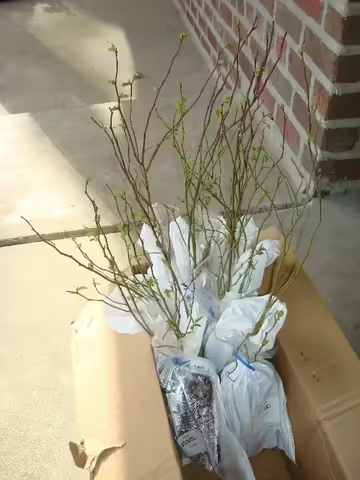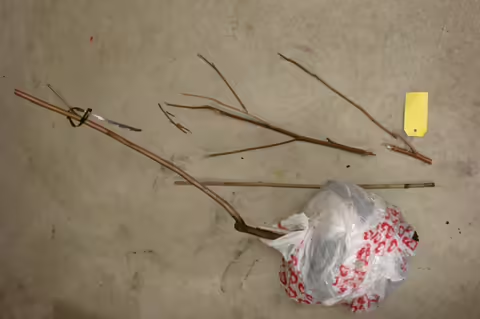How we shop and buy plants is changing, so gardeners need to sharpen their ‘internet savvy’ skills to avoid disappointment when ordering plants online. First, let’s talk about shipping. Shipping costs may be the single largest impediment to buying plants online due to outright sticker shock. Shipping can make up a significant portion of the order total. The reality is potting mix is heavy and shipping is expensive. Most nurseries are not large enough to offer free shipping, so it is passed on to you the buyer. Most shippers like UPS, FedEx and the US postal system use what is termed “dimensional weight” to calculate fees rather than the actual weight of the box. This means they have a formula to determine a standard maximum weight based on the box dimensions. As long as you stay under that calculated maximum weight, you can fill the box with as little or as much as you want and the cost is the same. Go over that weight or ship in what is considered an over-sized box and you pay more. Many nurseries provide information on their website detailing available pot sizes and box arrangements. For example, one online nursery may use a box that can hold four 1-gallon pots or 25 band pots, or some mixture in between. If those more interested in a variety of plants, it may be more beneficial to select the smaller size to maximize shipping costs. By now it should be making sense to you why you get those popup windows advising you how many more plants you can buy without incurring additional shipping costs.
Because pots shifting around in the box during transit can cause serious damage to the plant, how the nursery packs plants for shipment is critically important. Some nurseries have it down to a science; using custom boxes that fold internally around plants to hold them in place, almost like a caddy system. Others rely on various packing materials and zip ties to hold the pots in place within the box. There is also the issue of keeping all the potting mix in the pots and moist during shipment. Most nurseries pack the top of the pot with moss or shredded newspaper and secure it with rubber bands to keep the potting soil in place. Other nurseries insert the entire pot in a plastic bag of some sort and secure it with cellophane tape. Let’s just say it can take a lot of effort on the nursery’s part to securely pack their plants for long distance shipment, and an equal amount of effort on the gardener’s part to unpack them.
Having said that, gardeners need to be realistic in their expectations. We are talking about putting a living plant in an enclosed, dark environment for several days. During that time, it will most likely be turned on its end several times regardless of markings on the box instructing otherwise, and most likely exposed to temperature extremes in the back of a truck. Some online nurseries only guarantee their plants if you select express or next-day shipping, otherwise you accept the risk using standard shipping. Most online nurseries restrict shipments during summer and winter months to certain areas to reduce plant injury or death. The St Louis Metropolitan is one of those restricted shipping destinations. In the summer, it is just too hot for plants to be in an enclosed box in the back of delivery truck for several days, let alone sitting outside on your porch waiting to be opened. Winter again is too risky. Even if the plant you ordered is a tropical houseplant destined for your living room, the plant will most likely be exposed to freezing temperatures during shipment in the winter months. Not all online nurseries restrict time of shipment, but rather ship when the plants are available, so make sure you know exactly when they plan to ship. No one wants to receive a plant in the middle of a blizzard or while they are on vacation. In some cases, the nursery is able to hold an order until shipping conditions are more suitable. Not all nurseries have the space to hold orders for longer periods of time, and that may determine when you make the actual order.
Shopping online will also expose you to a lot of new plant material. Always vet each plant you are considering, especially species that are new to you. Do your homework! Go beyond checking the cold hardiness, sun exposure, soil drainage, heat tolerance or whether it is native. Be leery of any plant whose description includes terminology like spreads aggressively in optimal conditions, readily reseeds or spreads by rhizomes. There is nothing more annoying than planting a thug plant on purpose. Be aware of plants on the Illinois Exotic Weed List and avoid them like the plague. Remember, it is illegal for anyone to buy, sell, distribute, or plant any parts of listed species without a permit in Illinois.
Depending on when you receive the shipment, plants can be in various stages of development and they need to be handled accordingly. All plants should be unboxed immediately and watered to resettle the potting mix in the container and around the roots. If conditions are suitable, they can be planted immediately. Otherwise, plan ahead for where the plants can be safely cared for until conditions are suitable for planting. If you receive an early spring shipment, there is a good chance some of your plants will be at the swollen bud stage. Use extreme care unpacking these plants to avoid knocking off buds. You may also receive dormant plants. It may be disconcerting to receive a pot full of potting mix with no signs of plant life, but rest assured, all is well most likely. Plant as you would any other perennial, avoiding the tendency to plant too deeply without the top growth to act as a guide.
The reality is some nurseries are better at transparency and customer service than others. Online sales separates the good from the not-so-good rather rapidly, so it is important that you review nurseries before making an order. There are usually three key issues to focus in on. One has already been discussed. How well were plants packed for shipment? Another issue commonly mentioned in reviews is the size of the plant and how well it was rooted. Many of the better online nurseries will notify the customer if the ordered plant in not up to standard or is not rooted well enough, giving the customer the option to cancel or continue with shipment, depending on the situation. And the third issue mentioned the most is customer service.

